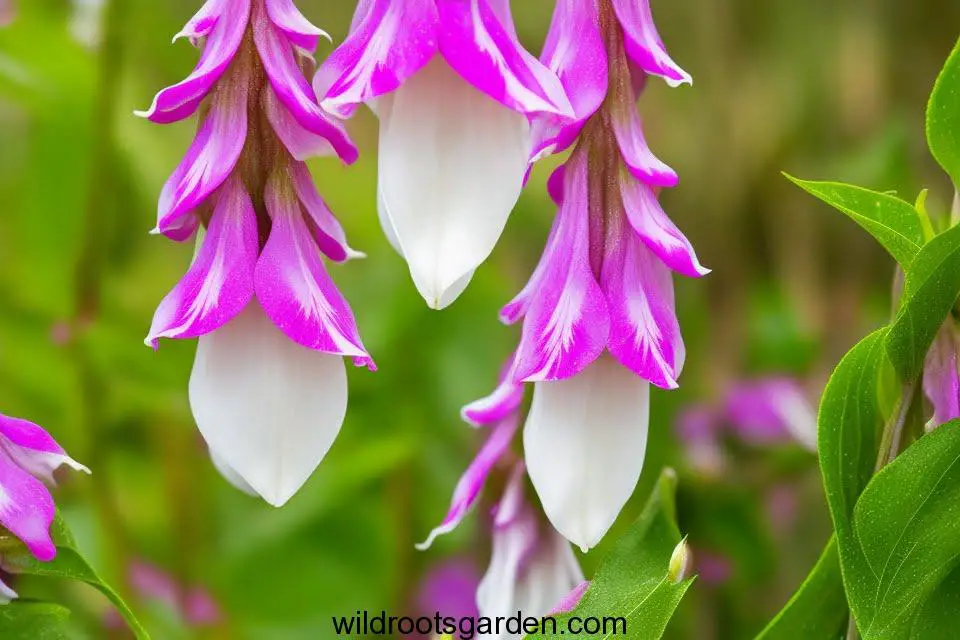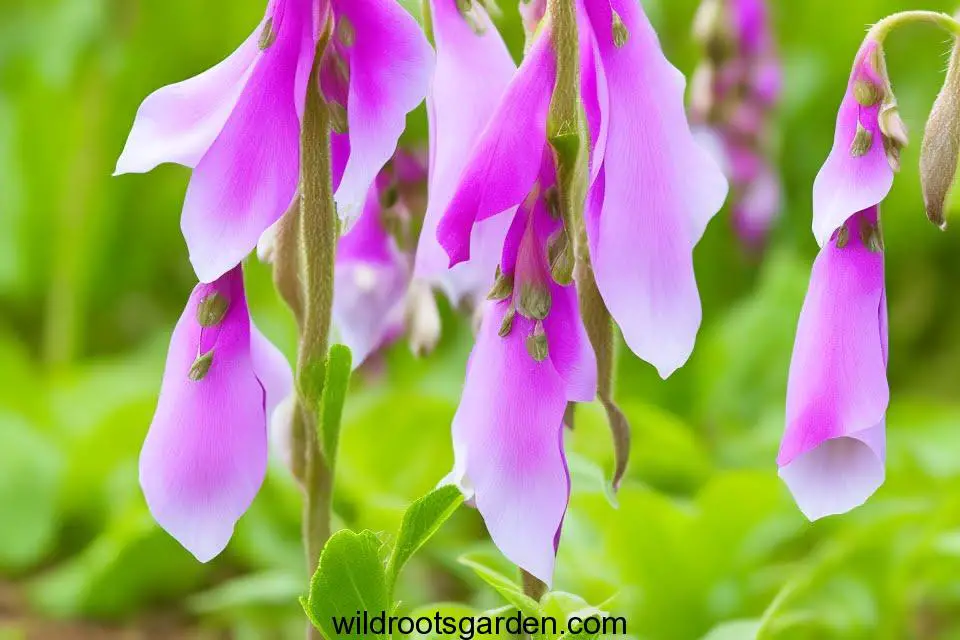Introduction
Welcome to our in-depth guide to foxglove, a captivating flower recognized for its alluring qualities as well as its beauty. In this article, we delve into the foxglove realm and examine both the plant’s therapeutic uses and any potential hazards posed by its poisonous components. We hope to give you a comprehensive grasp of Foxglove that goes beyond its outwardly alluring qualities through our in-depth insights and abundance of knowledge.

The Enchanting Beauty of Foxglove
The fascinating blooming plant known as foxglove, or Digitalis purpurea in botanical terms, is a member of the Plantaginaceae family. This perennial plant, which is native to Europe, is widely cultivated for its magnificent clusters of tubular flowers. Foxgloves bring a charming touch to any garden or landscape with their vivid colors, which range from purple, to pink, and white.
Medicinal Marvels: Harnessing the Power of Foxglove
A Historical Perspective
Foxglove has been used extensively in traditional medicine since ancient times. Due to its powerful therapeutic qualities, it has been used for many different things. According to historical accounts, foxglove has been used for ages, with herbalists and physicians appreciating its therapeutic value.
Cardiac Applications: A Lifesaving Aid
Cardenolides or bufadienolides, which are chemicals that have a remarkable impact on the heart, are cardiac glycosides found in foxglove. These medications frequently used in the treatment of cardiovascular diseases operate as potent cardiac stimulants. Foxglove-derived medicines have helped save many lives by improving cardiac muscle contractility and controlling heart rhythm, and they still play a crucial role in modern medicine.

Conditions Treated with Foxglove
Foxglove-based pharmaceutical preparations, such as digoxin and digitoxin, are widely prescribed by healthcare professionals to manage various cardiac conditions. Some of the conditions that can benefit from these medications include:
- Congestive heart failure: Foxglove helps improve heart function, reducing symptoms and enhancing the quality of life for individuals with this condition.
- Atrial fibrillation: By regulating the heart’s electrical impulses, foxglove medications aid in controlling irregular heart rhythms.
- Supraventricular tachycardia: Foxglove can help restore normal heart rhythm in individuals experiencing rapid and irregular heartbeats.
The Dark Side of Foxglove: Toxicity and Precautions
Even though foxglove has tremendous therapeutic potential, it is important to recognize its poisonous nature and use caution if handling or swallowing any plant parts. The same chemical components that make foxglove a potent therapeutic remedy can also constitute a serious risk if misused.
Poisonous Properties
If consumed in excessive doses, the poisonous components of foxglove, such as cardiac glycosides, can be fatal. It is crucial to understand that these poisonous components are present in every part of the plant, including the flowers, leaves, stems, and seeds. Foxglove use can result in symptoms like nausea, vomiting, unsteady heartbeats, and even potentially fatal cardiac arrhythmias.

Handling and Safety Precautions
To prevent accidental ingestion or exposure to foxglove’s toxic compounds, it is vital to follow safety precautions:
- Keep foxglove plants out of reach of children and pets.
- Wear gloves when handling foxglove to avoid skin contact.
- Educate yourself and others about the potential dangers associated with foxglove, especially if you have young children or pets in your household.
Seeking Professional Guidance
If you suspect foxglove ingestion or experience any adverse symptoms after contact with the plant, it is crucial to seek immediate medical attention. Healthcare professionals possess the expertise to provide appropriate guidance and treatment.
Conclusion
In conclusion, foxglove is a fascinating flower that possesses both amazing medical properties and dangerous qualities. It is a topic of tremendous interest due to its historical importance in conventional medicine and its function in contemporary cardiac care. By being aware of the advantages and dangers of foxglove, we can appreciate its beauty while being cautious around it. To ensure everyone’s well-being and safety, keep in mind that Foxglove’s actual strength resides in its responsible and informed use.

